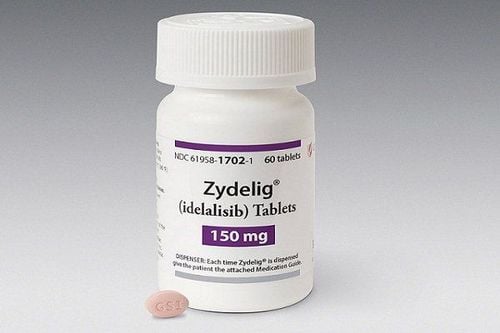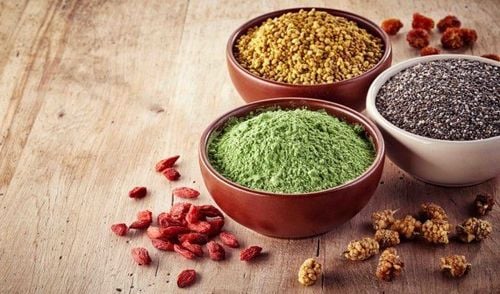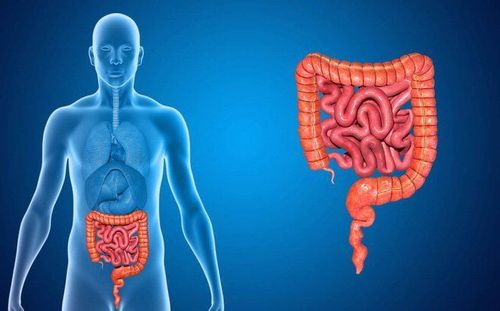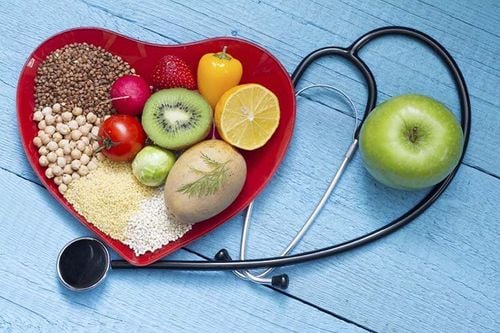This is an automatically translated article.
Diarrhea is a common digestive disorder in cancer patients. A low-fiber diet is recommended in cancer patients who have diarrhea because consuming too much fiber, especially insoluble fiber, can enhance bowel movements and make diarrhea worse. the more severe.
1. Why do cancer patients have diarrhea?
Diarrhea is a common digestive disorder in cancer patients. The duration and severity of diarrhea depends on the cause. Some causes of diarrhea in cancer patients include:
Cancer treatments: Some cancer treatments can cause diarrhea. These include chemotherapy, radiation therapy, immunotherapy, targeted therapy, and bone marrow transplants. Surgery can cause diarrhea if part of the intestine is removed. Infection: Cancer treatment can make a patient more susceptible to infection. Those infections can cause diarrhea and antibiotics are used to treat this. Cancer: Some cancers can cause diarrhea. These include neuroendocrine tumors, colon cancer, lymphoma, medullary thyroid cancer, and pancreatic cancer.
2. Why should cancer patients with diarrhea eat less fiber?
Dietary fiber provides roughage and has the ability to stimulate bowel movements. Generally, patients should consume at least 28 grams of fiber per day to promote gut health. The main sources of fiber are fruits, vegetables, whole grains, nuts and dried beans. However, a common side effect of cancer treatment is diarrhea. If you have treatment-related diarrhea, you should follow a low-fiber diet and limit your fiber intake to about 10 grams per day.
A low-fiber diet is better tolerated with diarrhea because it will not stimulate bowel movements too much and will be easier to digest. To find out how much fiber is in a serving, patients should read food labels or look up nutrition websites. Patients should choose foods with 2 grams of fiber or less per serving. Below is a summary of high-fiber foods and low-fiber foods. Patients can refer to it to build a balanced, reasonable diet.
| Nhóm thực phẩm | Thực phẩm giàu chất xơ | Thực phẩm ít chất xơ |
| Trái cây |
Trái cây tươi Trái cây sấy khô |
Chuối Táo Trái cây đóng hộp Trái cây nấu chín không có vỏ hoặc hạt Nước ép trái cây không có bã |
| Rau củ | Bông cải xanh, cải Brussels, bắp cải, súp lơ trắng, ngô, đậu Hà Lan, ớt, củ cải và rau sống | Măng tây, cà rốt, đậu xanh và bí |
| Bánh mì và mì |
Lúa mì nguyên hạt và ngũ cốc nguyên hạt Gạo lứt Bánh ngô Bánh mì với trái cây hoặc hạt khô |
Các sản phẩm bánh mì làm bằng bột mì trắng tinh chế Gạo trắng Bánh gạo trắng |
| Ngũ cốc |
Các loại ngũ cốc Cám Lúa mì vụn Granola Bất kỳ loại ngũ cốc nào với trái cây hoặc hạt khô |
Bột yến mạch |
| Các loại đậu | Đậu lăng, đậu lima, đậu gà, đậu tây và đậu đen,… |
3. Foods to eat and avoid in cancer patients with diarrhea
3.1 What foods to eat When you have diarrhea, cancer patients do not need to completely limit fiber. Patients should eat less fiber, but should supplement with soluble fibers because they have the ability to absorb fluids and help reduce diarrhea. Foods rich in soluble fiber include: apples, bananas (ripe), canned fruits, oranges and grapefruits, boiled potatoes, white rice, tapioca, barley, oatmeal and flour products white.
When suffering from severe diarrhea, cancer patients should eat bland and easily digestible foods such as chicken, fish, eggs, pudding, mashed potatoes, noodles, rice, yogurt, cheese, smooth peanut butter, white bread, bananas, canned fruits and cooked vegetables. Eating 5 to 6 small meals a day is generally better tolerated than eating 3 large meals. Patients also need to drink plenty of water during the day and especially after each loose bowel movement to avoid dehydration.
3.2 Foods to avoid When you have diarrhea, the patient should avoid the following foods:
Nuts, whole grains, legumes, raw fruits and vegetables. Fatty foods, fried foods Spicy and spicy foods Foods and drinks that contain caffeine, e.g. coffee, tea and chocolate Milk and dairy drinks Avoid chewing gum, as well as sugar-free candies and chewing gum containing sorbitol or mannitol If diarrhea does not improve, medication may be required to control symptoms and prevent dehydration. There are now several drugs that can help relieve diarrhea in cancer patients. However, patients should not self-medicate, but should consult a doctor or pharmacist before using.
Please dial HOTLINE for more information or register for an appointment HERE. Download MyVinmec app to make appointments faster and to manage your bookings easily.
Reference source: oncolink.org












